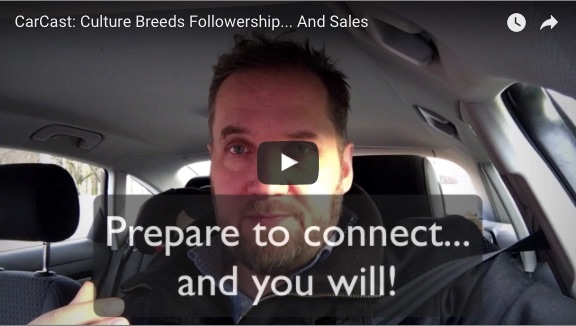Hey there.
Once in a while an aspiring freelance copywriter comes along and asks for advice:
How to close some of those elusive, high paying, credibility boosting copywriting deals.
Here’s my usual advice, condensed into four important basic points.

1. Never… EVER give a quote right off the bat!
This is a rookie mistake… and yet, I still fall for it on rare occasion if I’m not alert enough or get too excited.
If you blurt out your quote (typically rather high in their non-educated opinion) – you’re running the risk of over 90% certainty that they’ll say no thanks and run off into the night, basically.
Sticker shock is a very real risk, in companies of ALL sizes.
In fact, if they don’t understand what they’re buying, the price is ALWAYS going to be too high.
The problem is, at this point they really don’t know what they’re about to pay for, yet. They may THINK they do.
But until you open their eyes to all of the legwork involved, and how the end result will truly help their business sell more… they just can’t connect the dots.
In short, you need to build up the value of copywriting way above the price they’re going to pay, first. Then, paint them a very detailed, real picture of what the end result will be like. If you can add proof, that’ll help too.
THEN they’ll start entertaining the notion of paying you. Just don’t get excited and blurt out the quote. They’ll be gone faster than a fart in Sahara (as a colorful Finnish colloquialism goes).
2. Have an expiration date for every offer you make
So when you’ve made that thoughtfully prepared offer, you need to set your eyes on getting an answer.
I know, weird right?
The customer asked you for a quote so surely they’ll be in a hurry to get you signed, yeah?
Not so, necessarily.
In fact, it’s almost a given that they’ll have a thousand distractions, doubts and misguided thoughts about the whole affair before it’s a done deal.
Therefore, approach making your offer as yet another marketing exercise.
In particular – give your offer a very definite expiration date.
A solid date after which.. your availability may no longer be guaranteed, and the terms of the contract will have to be renegotiated, at the very least. Quite likely to their detriment.
See, it’s just too tempting for them to leave an offer sit and not really give it thought. The no-friction option.
The key here is to let them know both the offer and you are rarities. They need to know you’re in demand, and that your offer is exceptionally good value for them – they’d kick themselves if they’d let it pass.
If you did your job well and they perceive your offer a very beneficial one for them, they must feel it’s not there forever.
Then, you’ll have the leverage to pull it in as the expiration date closes in.
In short, if your client isn’t exhibiting a sense of urgency, as the copywriter you must create it.
3. 50-100% upfront fee structure
You must know by now that copywriting projects can often feel like endurance tests.
Especially if you’re writing a larger package for a product launch or some other large project, watch out.
There’s a reason copywriters talk about a “feast or famine” syndrome.
You may get a sizable paycheck, but it may mean having to dedicate inordinate amounts of uninterruptible time to their project, shutting out from the rest of the world – including your own sales efforts.
Also, your client may well have trepidations about the project if they’re not already accustomed to ambitious marketing projects. They may be tempted to ask for instalments, to pay just a tiny upfront fee, and so on. To in essence, ‘pay later’. Do not go for those.
So how do you solve this, for the benefit of both yourself and your client?
Charge 50% upfront, and the other 50% upon completion.
ThIS way it’s fair for both – the client gets to show some commitment, and you focus 100% on their project. Without having to worry about feeding your kids while you deep-focus on their quicksand of a project. 🙂
Main point being: do NOT… leave everything to trust. This is business, even though it can be fun also. If your client says they’re good for it, ask them to show it.
50% upfront is fair for both: you get resources to start with, they show they mean it. 100% upfront can be great too if the client suggests it, but in many cases the 50/50 works best.
Try it for yourself, this is my experience over 10+ years of freelance copywriting.
4. As soon as you give that quote… just shut it
So now, when you’ve finally given your carefully considered quote you’re positive is both fair to you and has a good chance of being accepted…
As you physically give voice to your quote, there’s a great temptation to immediately follow up the price with your own justifications for it, and your assumed reasons why they want to pay it, and so on.
Don’t do that. Just shut up and wait. Let it sink in.
It’s the hardest thing to do, I know.
After all that work to put together the deal, you want to do everything to make sure the deal sticks.
But if you want to shorten your learning curve… this is how it’s done. If you’re on the phone, go ahead and mute it while you giggle to yourself or whatever… but let the ball fall in their court now.
They’ll come around to it, and you’ll pat yourself on the back.
First things last
Finally: do not take it personally. It’s not about you.
It’s about making two parties come together in a beneficial way.
Sometimes it happens easily, other times it takes several iterations, discussions, visualizing of scenarios… whatever is needed to get to the decision point.
If you end up losing that deal, do not lose heart. Even the greats don’t have a 100% batting average.
There WILL be the ones that got away, and you’ve got to believe it happens for a reason. You don’t know what calamity might have happened, had you hopped on that train.
If you followed your plan while negotiating (ie. at least these 4 basic principles), it may well be that you dodged a bullet. It’s not uncommon to look back after a while and see somebody else struggling with ‘the one that got away’.
And if your career has any legs, you will need to have some of those rotten experiences, too. Just to know what it feels like, why it happens, how to survive it… and yes, even how to give advice to others about it.
Personally, I’ve amassed quite a backlog of notes on this dealmaking process for copywriters. I will happily divulge those secrets to anyone willing to come under my wing for a mentoring stint.



No Comments
Leave a comment Cancel